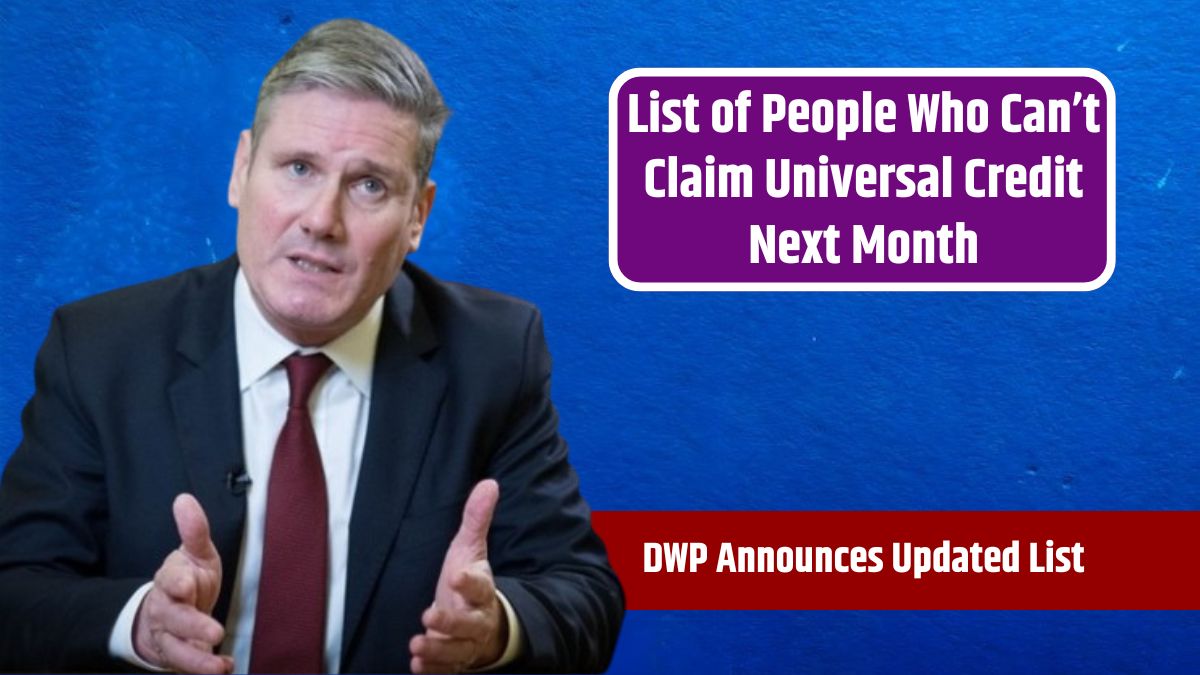The Department for Work and Pensions (DWP) has recently released an important update detailing specific groups of people who will be exempt from transitioning to Universal Credit (UC) in the coming months. As the DWP progresses with moving individuals from older benefit systems to UC, not everyone will be affected by this change. Knowing who these exemptions apply to is crucial, especially if you or someone you know is currently receiving benefits.
Universal Credit
Universal Credit was introduced as a streamlined welfare benefit, combining six older benefits, such as Income Support, Working Tax Credit, and Housing Benefit, into one. While the system aims to simplify the application process and provide in-work support, the DWP recognizes that not all groups are suitable for this transition. For some, staying on their current benefits or moving to alternative support options like Pension Credit may be more appropriate.
Exemptions
The DWP has identified several key groups who will be exempt from transitioning to Universal Credit:
State Pension Age
Individuals or couples where everyone is at or above State Pension age will generally not be transitioned to Universal Credit. Instead, they may continue to receive benefits like Pension Credit, which is specifically designed to support retirees with low income. This exemption ensures that those who are no longer in the workforce are not forced into a system designed primarily around work-related activities.
Housing Benefit
Claimants who only receive Housing Benefit alongside another DWP benefit will likely remain on their existing benefits. This exemption is particularly relevant for older individuals who might struggle with UC’s digital application process. By allowing these claimants to stay on their current benefits, the DWP aims to prevent unnecessary disruption to their financial stability.
Supported Housing
Those living in supported housing arrangements, such as hostels, refuges, or specific types of private accommodation, are exempt from the transition to UC. Supported housing often provides a combination of housing and additional services that go beyond mere financial support. Because of these unique needs, the DWP has decided that UC is not a suitable replacement for the existing support these individuals receive.
Temporary Accommodation
Individuals placed in temporary council housing due to homelessness are also exempt from migrating to Universal Credit. UC’s focus on work-related activities does not align well with the immediate housing concerns faced by those in temporary accommodation. The DWP acknowledges that these individuals require more immediate, tailored support rather than the employment-focused structure of UC.
Limited Capability for Work
Claimants who receive benefits due to limited capability for work, often due to long-term disabilities, may also be exempt or offered alternative support. The DWP recognizes that UC’s emphasis on work may not be appropriate for everyone, particularly those with severe disabilities. These individuals will either remain on their current benefits or transition to more suitable support programs that better meet their needs.
What to Consider
If you fall under one of these exempt categories, it’s essential to stay informed about your options. Contacting the DWP directly can provide clarity on your specific situation and help you determine whether you’ll remain on your current benefits or transition to an alternative form of support.
For those who are transitioning to Universal Credit, there are several factors to keep in mind:
- Digital Application: UC applications are primarily online. If you’re not comfortable with digital tools, Jobcentre Plus staff and citizen’s advice services can offer assistance.
- Waiting Period: There is a waiting period before receiving your first UC payment, so budgeting during this time is crucial.
- Work Requirements: UC includes work-related obligations, so understanding these requirements and seeking support from Jobcentre Plus can help you meet them.
The DWP’s approach to exempting certain groups from Universal Credit reflects a knowing that a one-size-fits-all system doesn’t work for everyone. By identifying and respecting the unique needs of specific groups, the DWP aims to ensure that the transition to UC is as smooth and supportive as possible.
FAQs
Who is exempt from transitioning to Universal Credit?
Groups like pensioners, those in supported housing, and some disabled individuals.
Will I stay on my current benefits if I’m exempt?
Yes, you’ll remain on your existing benefits or transition to a more suitable program.
What should I do if I’m unsure about my exemption status?
Contact the DWP directly for clarification on your specific situation.
Is there help available for those who need to apply for Universal Credit?
Yes, Jobcentre Plus and citizen’s advice services can assist with the application process.
What are the main concerns with Universal Credit?
Concerns include digital literacy, waiting periods, and meeting work-related requirements.
